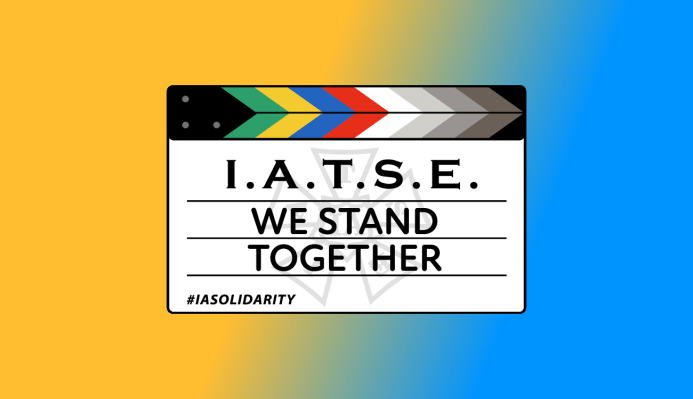Strike threatens working conditions in television and film productions of major streaming services – TechCrunch
[ad_1]
A dispute over working conditions at “new media” properties like Netflix, Disney +, Apple TV and others could end productions across the country if a union strike vote succeeds. Thousands of workers on and off the set say they are not receiving proper wages, breaks, safety precautions and other needs due to a contractual loophole exempting these companies from the labor standards established for the film and television production.
The conflict was widely covered by the entertainment press, celebrities and studios expressing their support and countless workers share horror stories jobs on these productions.
The problem, as explained by the International Alliance of Theatrical Employees, or IATSE, is a deal struck in 2009 when companies like Netflix were just starting to get into original productions and didn’t have the kind of infrastructure. work that established studios had. With the economics of these “new media†companies being “uncertainâ€, it was decided that they would be given “greater flexibility†in dealing on the ground where union rules could hamper new entrants and those who do not. ‘have not been tested.
But that same deal noted that once these services have become more economically viable, a new deal should take its place recognizing this. That time, according to IATSE, has come.
And who could disagree? Netflix is ​​now an industrial powerhouse and billions are spent by Disney, Apple and Amazon on some of the most high profile media productions ever attempted. Yet because this is “new media,” the gaffers and cling to, say, something like the next season of Jack ryan Where Bridgerton do not have the same guarantees of lunch breaks, time limits or wages at the appropriate scale as an “old media†production. (Note: I originally listed the the Lord of the Rings as an example, but this was poorly chosen as this is a New Zealand-based production and does not use the unionized IATSE workers.)
Image credits: IA_stories / Instagram
That’s not to say that every production in these companies is hell – it depends a lot on the producers – but the lack of guarantees has produced what many workers describe as systemic exploitation. It stands to reason that they will work more hours than what they are officially paid for, skip holidays and weekends, etc., while earning less than for equivalent work on production under, say, Universal or A24.
Much ink has been spilled on the huge production efforts of these companies, losing billions to compete with lucrative subscribers. Each company has dozens of shows produced simultaneously and on a hectic schedule to meet the seemingly bottomless demand for content. If we don’t get it again Strange things season over time, there is a good chance that something will become “the new Strange thingsâ€And eat Netflix’s lunch, or rather popcorn.
Comparatively, little has been written in the tech world about the human cost of these productions – after all, it’s more about the pace of “entertainment.” But it’s only fitting for tech companies to claim the benefits of “innovation†while washing their hands of the repercussions; Hardly a week goes by without hearing about a horrific new consequence due to a feature or policy at Facebook, Google, Amazon, Uber, DoorDash, or a number of other companies.
It’s no surprise to hear that some of these same companies foster an exploitative work environment – many of them already depend on it!
Regardless, negotiations between IATSE and the Alliance of Film and Television Producers have stalled and the union has officially asked its workers to vote on whether to call a strike. If it’s a “yes†when the votes are counted in a few days, there will likely be one last chance for the “new media†to come up with a satisfactory proposal before a large number of productions are shut down.
“We are united in demanding more humane working conditions across the industry,” IATSE President Matthew Loeb said today in a press release. “If the mega-corporations that make up AMPTP remain reluctant to meet our core priorities and treat workers with human dignity, it will take the combined solidarity of each of us to change our minds. “
Certainly almost everyone involved would prefer not to have to strike, although it would be an impressive display of the power of organized workers to disrupt an obviously hostile industry. Hoping that the negotiations are finally successful and that the production professionals trampled underfoot by this new generation of media overlords get the breaks they deserve.
[ad_2]

